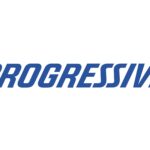The North Carolina Court of Appeals has declined to upset a 2008 agreement between the state’s former insurance commissioner and insurers that hiked insurance rates for some coastal homeowners up to 30 percent and cut them for others in inland counties.
Former Insurance Commissioner Jim Long did not follow formal procedures in granting the rate hikes in late 2008 as he was completing his final term in an office he held for 24 years. The court found that state law does not allow for an appeal of the decision because there was never a public hearing or a formal determination that the rates requested by the North Carolina Rate Bureau on behalf of insurers were unfair.
“This court cannot assume jurisdiction over any order of the Commissioner that does not include those requisite findings without acting contrary to the plain language” of state insurance code, wrote Judge Ann Marie Calabria for the three-judge panel.
The ruling was the second defeat for residents of Dare, Washington, Currituck, and Hyde counties and five coastal towns, whose lawyers argued that the rates and the process were unfair and that the public was never given the opportunity to review the rates. A lower court in Wake County had rejected their appeal last April.
The decision meant that homeowners policies in five coastal counties, from Sunset Beach to Morehead City, jumped 29.8 percent. The Outer Banks counties of Currituck, Dare, Hyde and Pamilco saw premiums jump 22 percent. At the same time, homeowners rates in 32 western counties were cut 1.2 percent to 6 percent.
The deal struck by Long was well below the original statewide increase of 19.5 percent increase proposed by insurers. Long said it was $238 million less in premium.
The court noted that under state law a rate filing may be approved in one of two ways: either the commissioner may formally approve the filing; or if the commissioner does not issue a notice of hearing within 50 days of the rate filing, the rate filing is deemed approved on the proposed effective date.
Long did neither of these things. The North Carolina code also allows the commissioner and the rating bureau to come to informal agreements at any time, which is what they did in this case.
The court noted that the agreement between Long and the rating bureau also included an order stating that it appeared to the commissioner “that settlement under the circumstances set forth above is fair and reasonable and should be approved.”
In handling the issue the way he did, Long avoided opening the agreement to an appeal. The court said that state law limits direct appeals of rate changes to the court to situations where formal hearings are held and a determination that rates are unfair or excessive is made.
Topics Pricing Trends North Carolina
Was this article valuable?
Here are more articles you may enjoy.


 USAA Renter’s Insurance Policyholder Charged with Multiple Counts of Fraud
USAA Renter’s Insurance Policyholder Charged with Multiple Counts of Fraud  With American Mobile Cancellations, Florida Mobile Home Market Has ‘Fallen Apart’
With American Mobile Cancellations, Florida Mobile Home Market Has ‘Fallen Apart’  Beef Between Wholesale and Retail Agents Should Go to Trial, Court Finds
Beef Between Wholesale and Retail Agents Should Go to Trial, Court Finds  Progressive Q2 Net Income Skyrockets Over 320%
Progressive Q2 Net Income Skyrockets Over 320% 

